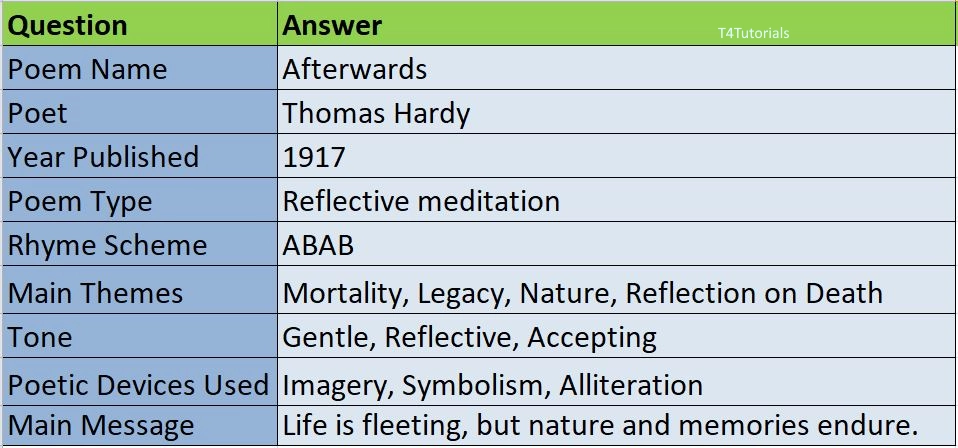Summary:
Thomas Hardy’s poem Afterwards is a reflective meditation on mortality and how people are remembered after death. The speaker contemplates his own passing, wondering if those left behind will notice the small things he appreciated in life—such as nature, animals, and changing seasons. The poem carries a gentle, melancholic tone, focusing on the idea of being remembered as someone who observed and valued the world around him. Hardy uses vivid imagery and a peaceful, accepting outlook on death, suggesting that life continues even after an individual is gone.
15
Score: 0
Attempted: 0/15
Subscribe
| Question | Answer |
| Poem Name | Afterwards |
| Poet | Thomas Hardy |
| Year Published | 1917 |
| Poem Type | Reflective meditation |
| Rhyme Scheme | ABAB |
| Main Themes | Mortality, Legacy, Nature, Reflection on Death |
| Tone | Gentle, Reflective, Accepting |
| Poetic Devices Used | Imagery, Symbolism, Alliteration |
| Main Message | Life is fleeting, but nature and memories endure. |